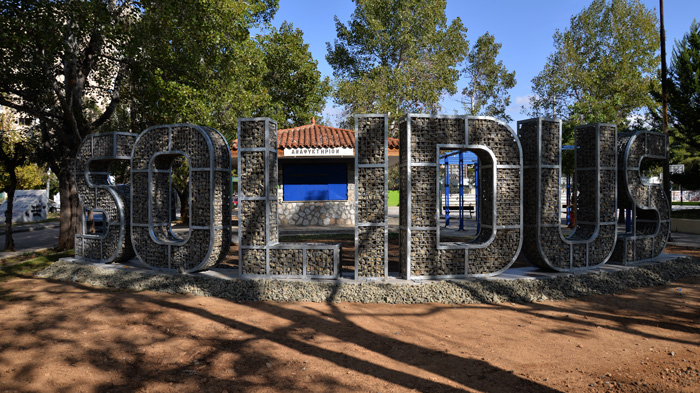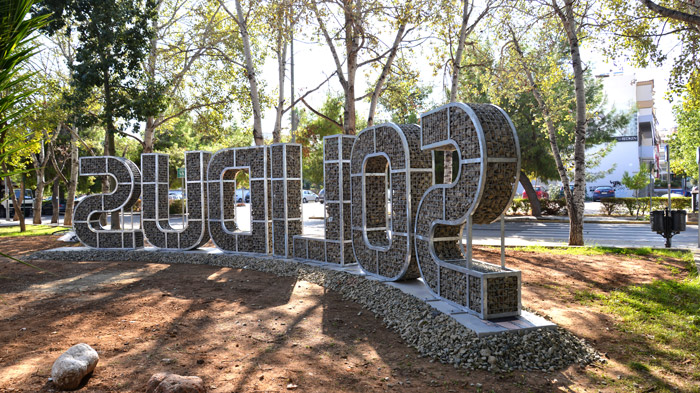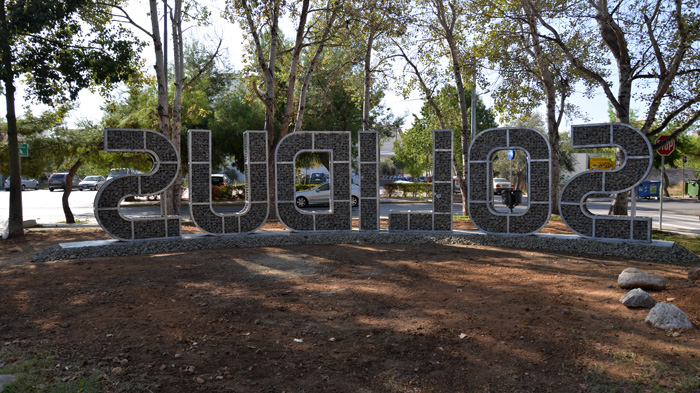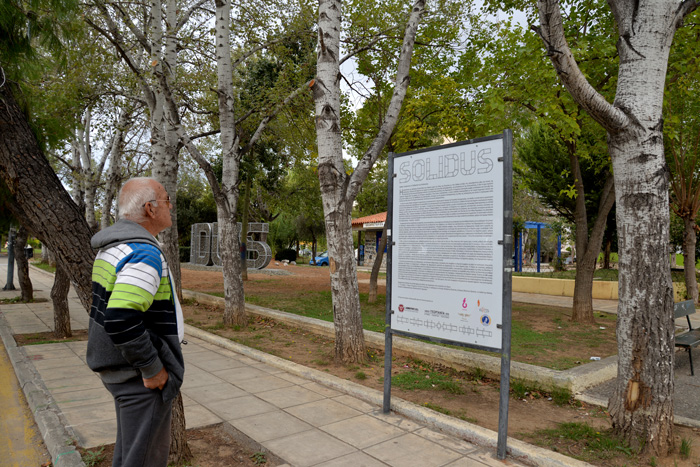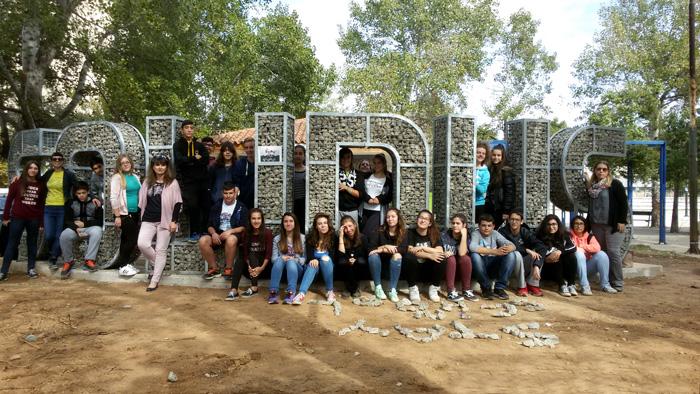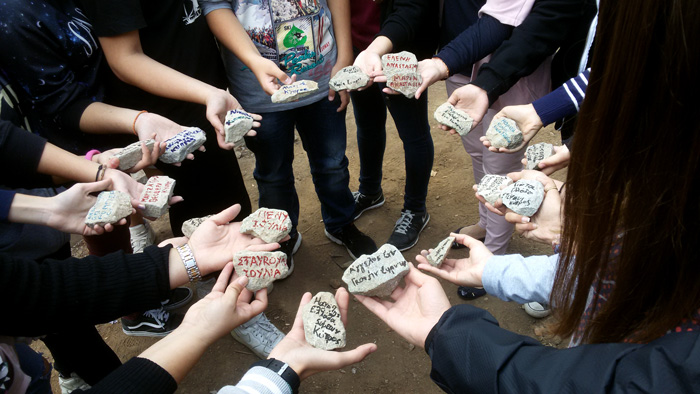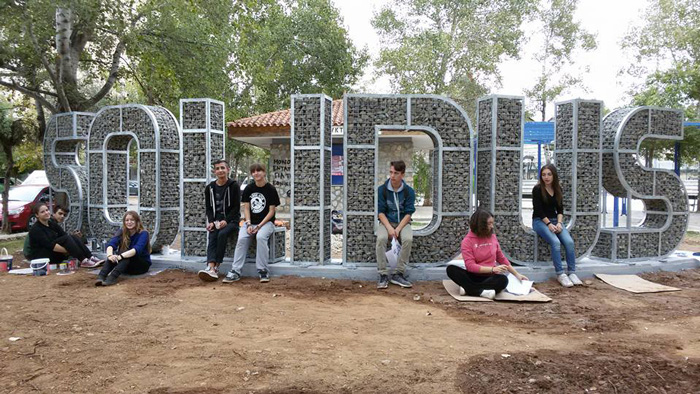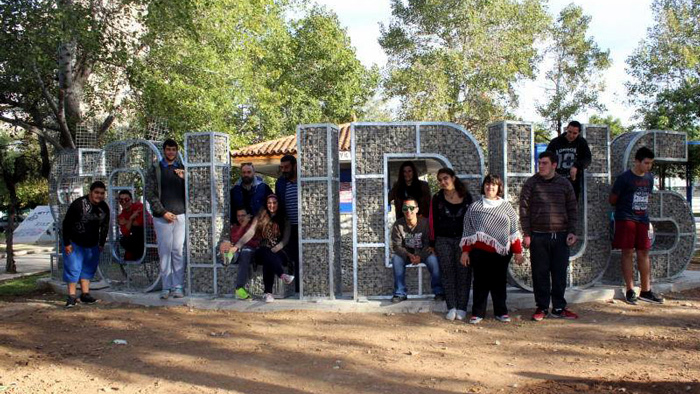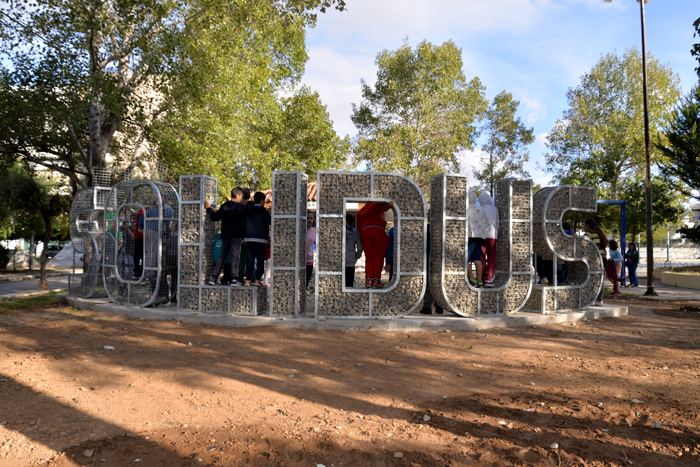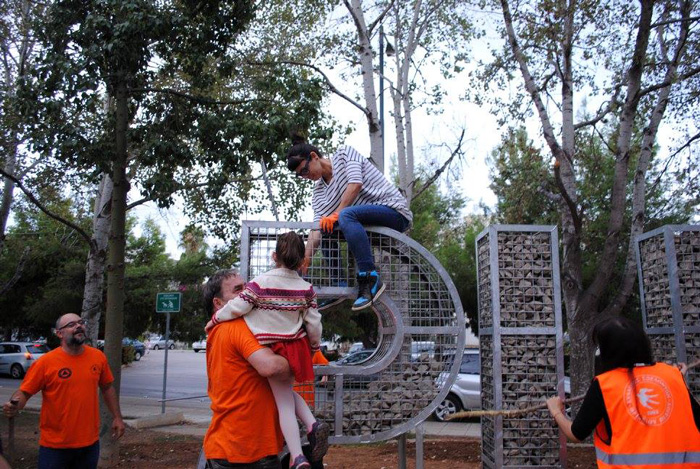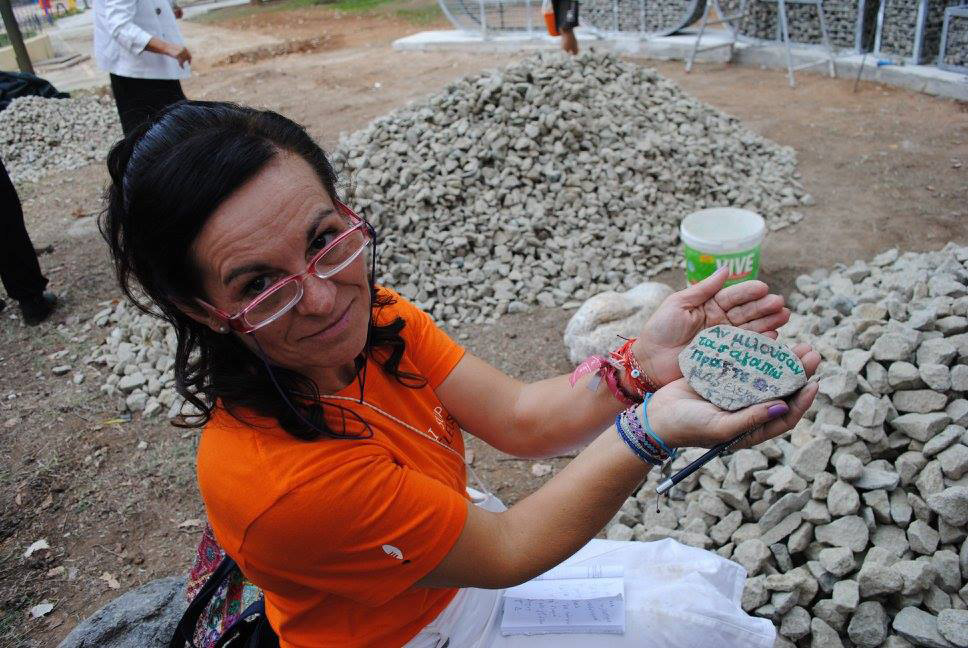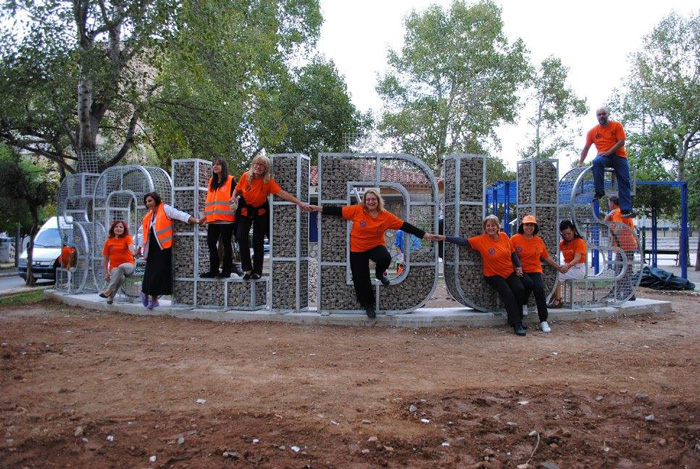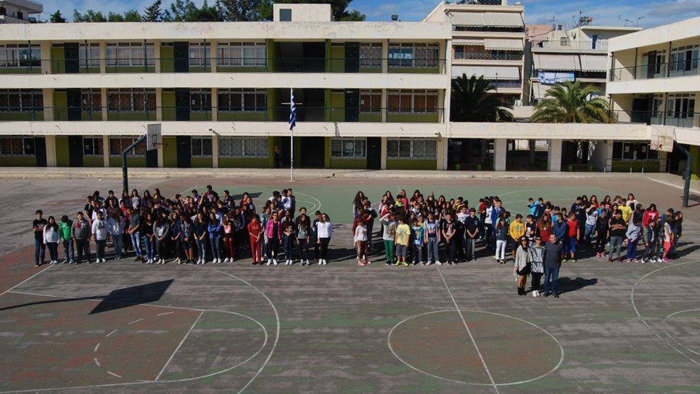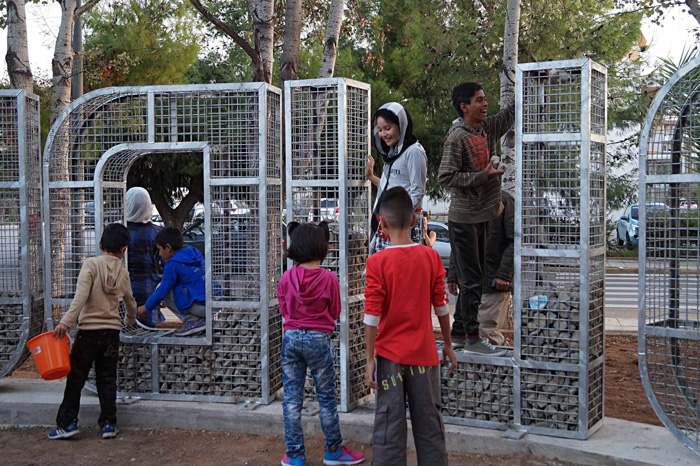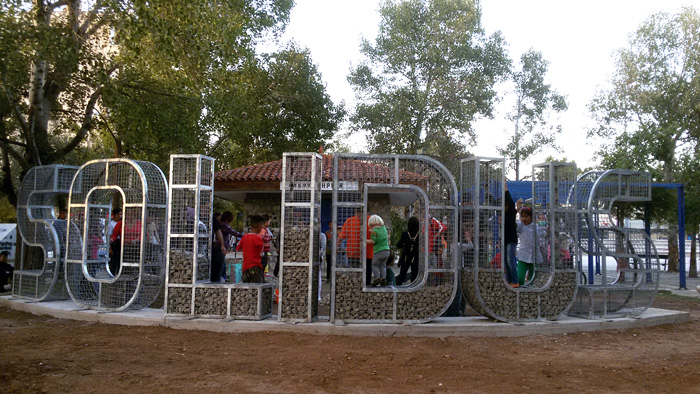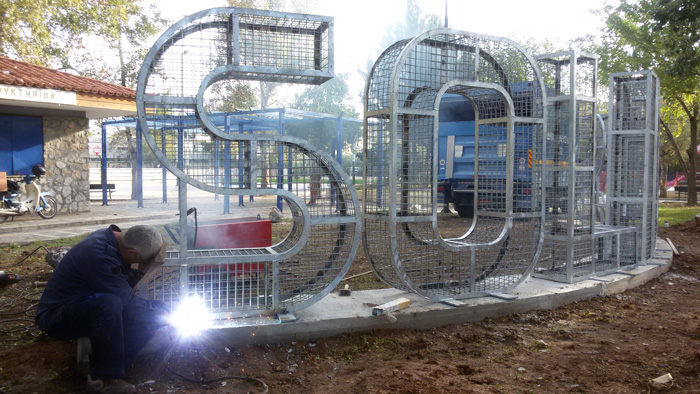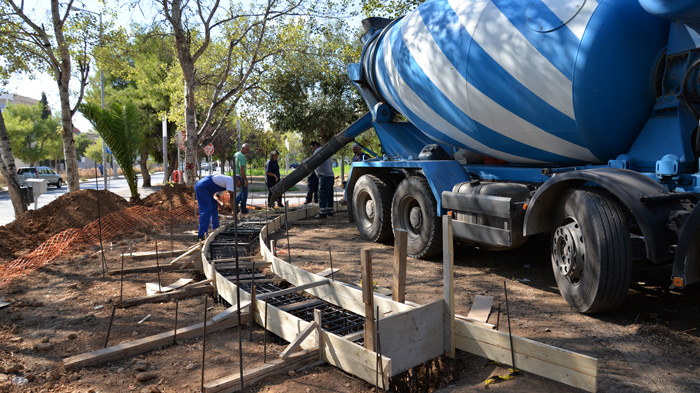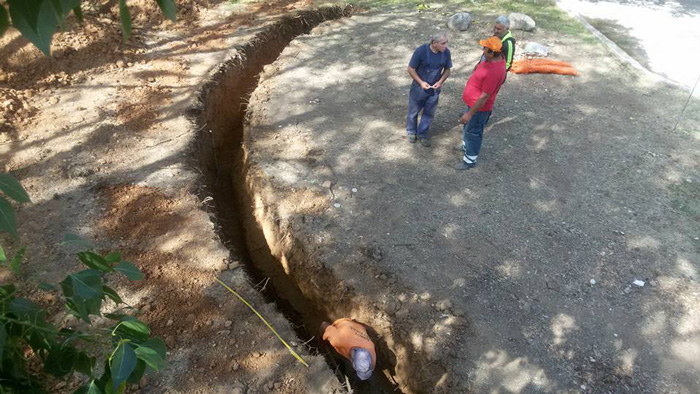Solidus
Solidus
The sculpture that is placed in Elefsina’s public space focuses on the universal values and essence of solidarity. The installation is gradually realized with the active participation of the citizens and social groups under the guidance of the artist. It could also function as a representational tool of solidarity and become the field of criticism of the contemporary economical, political and social reality. The title of this work (Solidus) derives from one of the first golden coins the Roman Empire created, which was the tangible result of the monetary reformations that followed the financial crisis of the Empire in the 3rd century A.C.
Solidus in Latin means solid and stability. This word and the emblematic concept lent — not coincidentally — the name to the official Roman coin Solidus that was used as a medium of exchange of diverse transnational activities of public and private transactions.
The characteristics of the search of harmony, conviviality, social coherence and of avoiding the destabilization of trade that can occur today seem to shrink and be driven to extinction within the context of capitalist utopias that were created by modern societies and which are eventually creating a semblance of economic democracy.
Rosalyn Deutsche mentions that the difficulty of democracy comes from the intrinsic strength of the people. Democracy and its relation with the public space, which is the field of political expression, is defined in a range that starts by challenging democracy and leads to authoritarian ways. The quality of the public space is defined automatically from the quality of the political expression, part of which is economy. Ownership, shared parts, specific urban conditions, ungoverned spaces, expression of ideologies and political conflicts are just some of the features of an active — as we could define — public space, which is the vital field of political expression of modern society.
Already in France in the late 18th century the very notion of solidarity (FR.: solidarité) shifted from a legal term, which regulated individual debts, and led to an economic and social condition. The collective solidarity and the establishment of a social welfare State were the object of request.
The concepts of consistency, stability, political humanism, action that exceed the private interests for the sake of the collective, as it is defined in the context of enlightenment, are applied visually and morphologically in the project Solidus. The solid and compact design includes stones, placed inside the iron frame from local social groups, schools, collectives, and organizations of the city of Elefsina.
The chosen materials refer to the industrial history of the city. This symbolical sculptural work embodies poetically the social dimension of cooperation that eventually activates solidarity.
Goethe says: «It is not always necessary to embody the true; is already enough, when it wanders spiritually and causes harmony; When it is fluttering in the sky as the sound of a bell: with seriousness and friendliness».
Panagis Koutsokostas (Historian, Museologist)
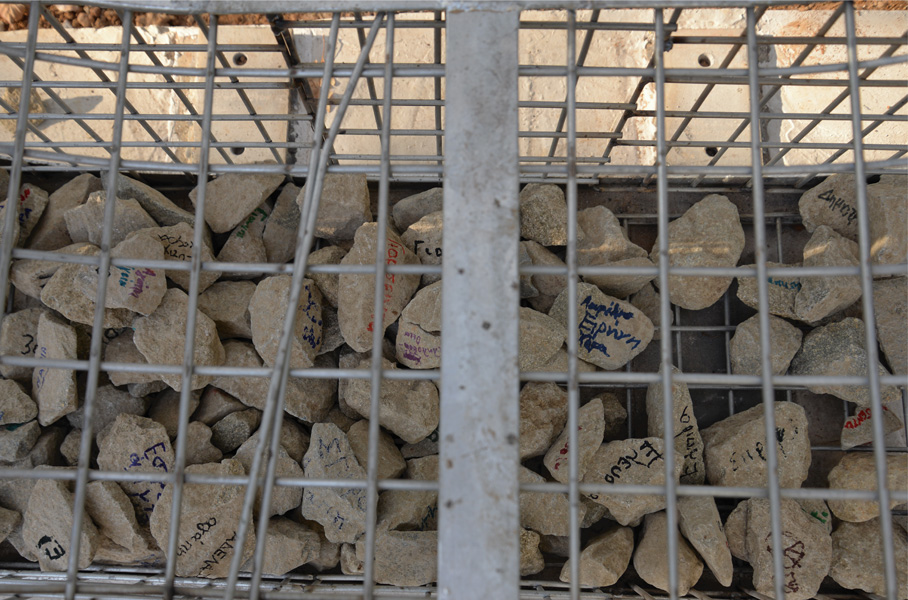
Searching for the stability of Solidarity.
Over 600 volunteers, 5000 kg stones, 2000 kg iron and concrete.
This project is realised with the help of Dimitiou LTD, Bros Georgantas LTD, Themeli Charalampos Tsokanis LTD, Municipality of Elefsina,EEEE, Elefsina's special needs school, Elefsina's 8th primary school, Elefsina's 3rd secondary school,Elefsina's 1st secondary school, Elefsina's 1st high school, Elefsina's Volunteers organisation,Refugees from Elefsina's hospitality centre and many Elefsinians.
